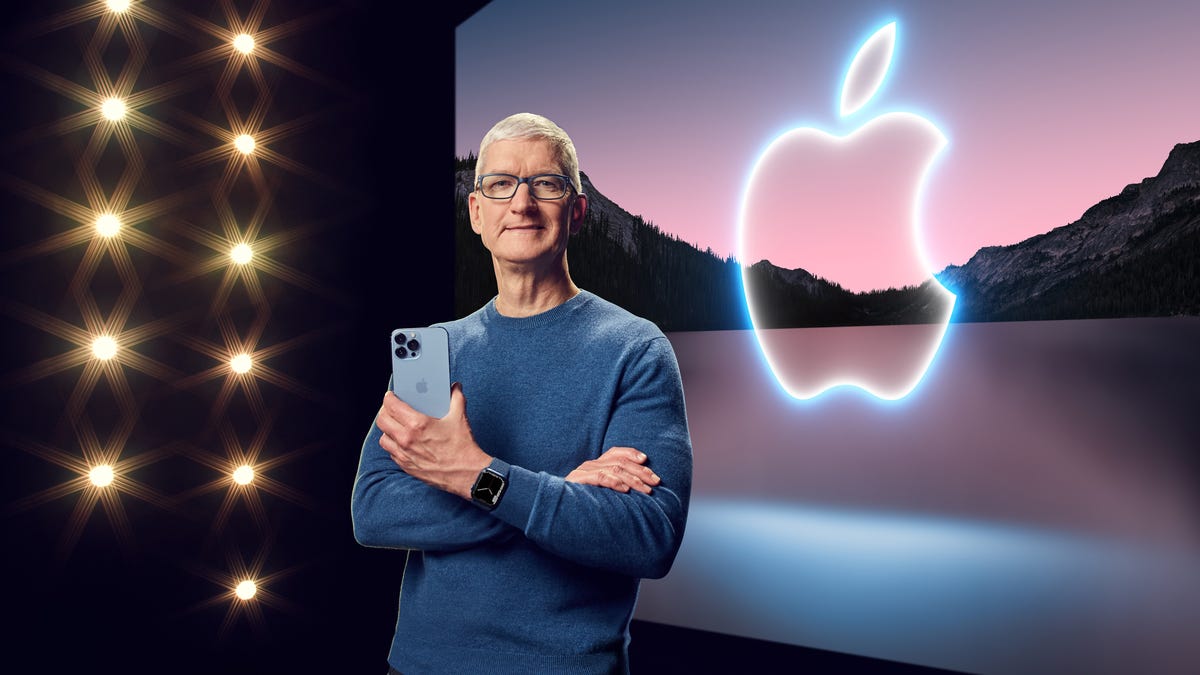Apple's Tim Cook Says the Fight to Protect Privacy Is a Crucial One
Apple's CEO also pushes back against charges that its app store controls are anti-competitive.

Apple CEO Tim Cook.
Calling it "one of the most essential battles of our time," Apple CEO Tim Cook said Tuesday that his company will continue to fight for data privacy protections that are in the best interests of consumers.
Cook also pushed back against charges that his company's tight controls over its app store are anti-competitive. While Apple maintains that the controls protect consumer security and privacy, the store is the only official way to download apps to iPhones, iPads, Apple TVs and Apple Watches.
Speaking at the International Association of Privacy Professionals' Global Privacy Summit, Cook said privacy continues to be threatened by the "data industrial complex," which seeks to collect information about everything from the restaurants where people eat and the stores where they shop to the websites they browse.
While those companies say they're collecting that data in order to provide consumers with a more custom experience, they usually don't give consumers a choice about it, Cook noted.
"Who would stand for such a thing if it were unfolding in a physical world?" he asked, noting that few people would actually agree to have someone with a camera follow them as they took their child to school, or watch them as they worked on their laptop.
"You wouldn't call that a service, you'd call that an emergency," he said. "In the digital world it is one too."
Cook pointed to several features designed to protect data privacy that Apple has introduced in recent years, noting that users can now decide for themselves if their apps should be able to track their activity across their devices, as well as take steps to mask their location and shield their email addresses if they desire.
He also pointed to Apple's efforts to minimize the data it collects and maximize the amount of processing that's done on device, rather than in the cloud, reducing the risk that consumer data could be stolen by cybercriminals.
While Cook said the company remains in favor of strong privacy regulations like the European Union's General Data Protection Regulation, or GDPR, and continues to call for such a law in the US, he said new regulations being debated in this country could put security and privacy at risk.
There's been fierce debate both in the public and within the tech industry about how much power tech giants should wield over their respective app stores and platforms.
Lawmakers, regulators and developers have argued that Apple, in particular, should loosen its restrictions, which don't allow developers to offer alternative app stores or to use alternative payment processors for in-app purchases of digital goods like new looks for a character in a game. Apple and Google both charge commissions of between 15% and 30% for those purchases, which they say help fund the technology and administration of their respective stores.
Some of the largest developers in the industry have taken strong stances against the current app store system. One of them, Fortnite maker Epic Games, sued both Apple and Google over the way they restrict payments on their respective app stores. The game maker, whose online battle royale game has become an international sensation, unsuccessfully argued to a California District Court Judge last year that Apple's actions ran afoul of antitrust laws. It is appealing that decision.
Cook argued Tuesday that allowing the downloading of apps from outside sources could let companies subvert Apple's privacy protections, as well as put the security of consumer data at risk. While not naming Google's Android operating system specifically, he pointed to the recent case of a malicious app that spread ransomware on devices other than Apple's after users downloaded it from outside of the official app store.

